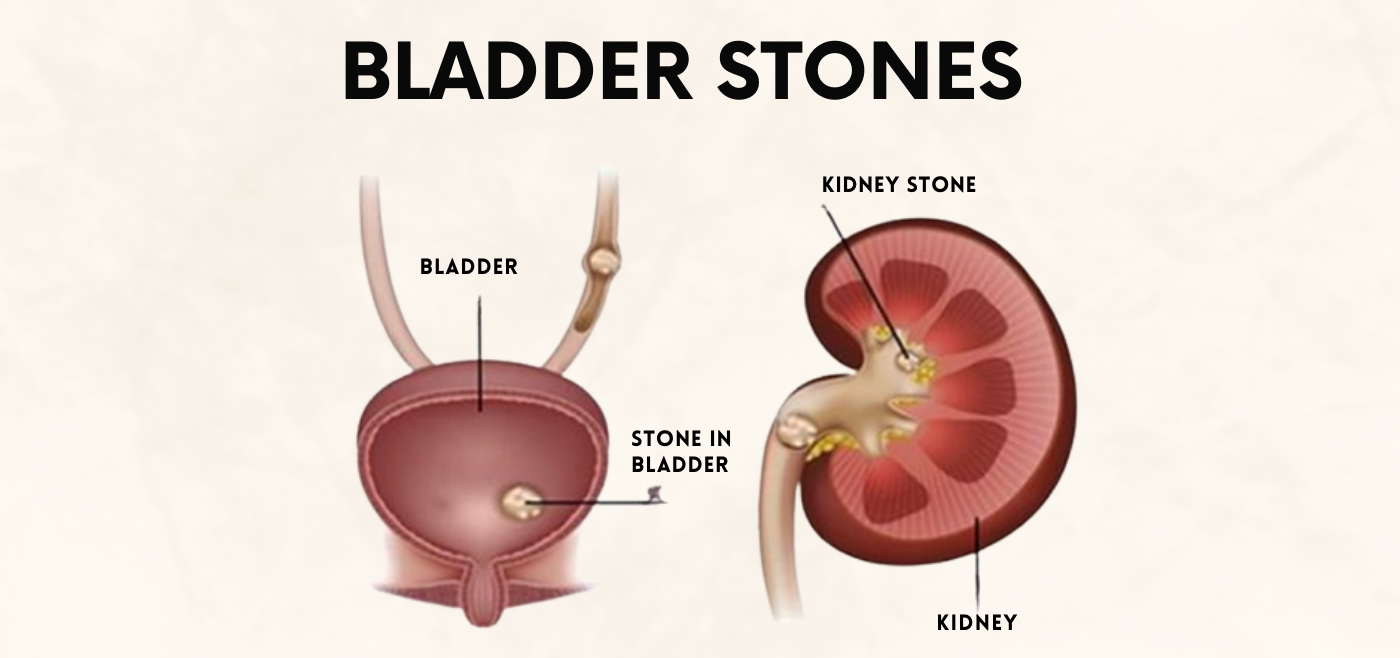
Urinary Tract / Bladder Stones Treatment
Overview
Bladder stones are hard mineral deposits that form in the urinary bladder due to concentrated urine, infections, or underlying medical conditions. If left untreated, they can cause pain, urinary difficulties, and complications such as infections or bladder damage. At [Your Clinic/Hospital Name], we provide comprehensive diagnostic and treatment options for urinary tract and bladder stones, ensuring safe and effective relief.
- Frequent and painful urination
- Blood in urine
- Difficulty emptying the bladder completely
- Lower abdominal pain
- Dark or cloudy urine
Our Treatment Approach
Diagnosis & Evaluation
- Urine tests
- Ultrasound and CT scans
- Cystoscopy for direct visualization
Non-Surgical Treatment
- Increased fluid intake to flush out small stones
- Medications to manage symptoms and prevent recurrence
Minimally Invasive & Surgical Treatments
- Cystolitholapaxy: A minimally invasive procedure using laser or ultrasound to break stones into smaller pieces for removal.
- Surgical Stone Removal: In cases where stones are large or causing severe complications, surgery may be necessary.
We prioritize personalized care, using the latest technology and minimally invasive techniques to reduce discomfort and promote faster recovery.
Why Choose Us?
- Experienced specialists in urology and bladder health
- Advanced diagnostic and surgical facilities
- Patient-centric care with customized treatment plans
- Focus on long-term prevention and recurrence management
Conclusion
Bladder stones can significantly impact your quality of life, but with the right treatment, relief is possible. At [Your Clinic/Hospital Name], we ensure a smooth and effective recovery with state-of-the-art procedures and expert care. If you're experiencing symptoms of bladder stones, consult our specialists today for the best treatment options.
FAQs
1. What causes bladder stones?
Bladder stones develop due to concentrated urine, infections, enlarged prostate, or difficulty in completely emptying the bladder. Some medical conditions and dietary habits can also contribute.
2. Can bladder stones be treated without surgery?
Yes, small bladder stones may pass naturally with increased fluid intake. However, larger stones often require minimally invasive procedures or surgery for removal.
3. How can I prevent bladder stones?
Staying hydrated, maintaining a balanced diet, and addressing any underlying urinary tract issues can help prevent bladder stones. Regular medical check-ups can also aid in early detection and management.